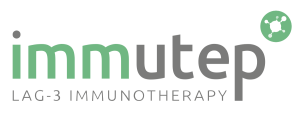
Posted: 27 June 2024
Immutep Limited (ASX: IMM; NASDAQ: IMMP) (“Immutep” or “the Company”), a clinical-stage biotechnology company developing novel LAG-3 immunotherapies for cancer and autoimmune disease, today announces topline results from the TACTI-003 (KEYNOTE-PNC-34) Phase IIb trial evaluating eftilagimod alfa (efti) in combination with MSD’s (Merck & Co., Inc., Rahway, NJ, USA) anti-PD-1 therapy KEYTRUDA® (pembrolizumab) as first-line treatment of recurrent/metastatic head and neck squamous cell carcinoma patients (1L HNSCC). The trial enrolled 171 patients with any PD-L1 expression (Combined Positive Score [CPS] ≥1) and negative PD-L1 expression (CPS <1) at over 30 centres across the United States, Europe, and Australia.
Topline Results – overall trial, primary endpoint
Immutep’s MHC Class II agonist in combination with KEYTRUDA led to higher overall response rates in evaluable patients according to RECIST 1.1 – the primary endpoint of the study – across all levels of PD-L1 expression (CPS >20, CPS 1-19, CPS >1, CPS <1) as compared to KEYTRUDA monotherapy (see Table 1). In the overall evaluable TACTI-003 patient population (Cohort A and B), the response rate for efti in combination with KEYTRUDA was ~34% regardless of HPV status and PD-L1 expression, including patients with negative PD-L1 expression.
Dr. Martin Forster of the UCL Cancer Institute and University College London Hospital NHS Foundation, London, UK, and TACTI-003 Investigator, stated, “It is encouraging to see efti safely drive higher response rates in combination with KEYTRUDA in the first line setting for head and neck squamous cell carcinoma patients, regardless of HPV status and levels of PD-L1. The strong, consistent response rates, irrespective of whether patients have high, low, or negative PD-L1 expression, is intriguing and offers a glimpse into this novel combination’s ability to improve patients’ clinical responses and expand patient populations that benefit from anti-PD-1 therapy.”
Cohort A results – randomised part of trial
In the randomised, controlled Cohort A (N=138; thereof 118 evaluable) comprised of 1L HNSCC patients with any PD-L1 expression (CPS >1), the novel immuno-oncology (IO) combination shows the strongest outperformance in patients with high PD-L1 expression (CPS >20) with a 31.0% overall response rate (ORR) and 75.9% disease control rate (DCR) in evaluable patients (N=29) as compared to a 18.5% ORR and 59.3% DCR for KEYTRUDA monotherapy in evaluable patients (N=27). High PD-L1 expressing patients represent ~50% of the overall population in 1L HNSCC.
The IO combination also achieved a relatively high ORR of 34.5% in evaluable patients (N=29) with low PD-L1 expression (CPS 1-19). The ORR with KEYTRUDA monotherapy in patients with low PD-L1 expression in TACTI-003 (N=33) was 33.3% and is higher than historical published data for pembrolizumab monotherapy, including a 14.5% ORR in patients with CPS 1-19 in a registrational study1. The large difference of the control arm versus historical results in low PD-L1 patients may be explained by imbalances between the TACTI-003 treatment groups, including smoker status and location of primary tumour.
Cohort B results
The Company is also pleased to report that the response rate in patients with negative PD-L1 expression (CPS <1) in Cohort B has substantially improved from the preliminary 26.9% ORR reported in April and that the updated clinical data has been accepted for an ESMO Virtual Plenary session. ESMO Virtual Plenaries are monthly presentations of the latest, original scientific data, including “Phase II trials which demonstrate remarkable therapeutic benefit, scientific insight or progress in an area of unmet need”. Final topline results including complete response rate in patients with negative PD-L1 expression, who represent ~20% of the overall population in 1L HNSCC, will be delivered via an oral presentation on 11 July 2024. This cohort was not randomised due to ethical reasons as KEYTRUDA monotherapy is not approved for these patients.
Safety
With respect to safety, the profile of efti in combination with KEYTRUDA continues to be favourable with no new safety signals as expected.
Dr. Frédéric Triebel, CSO of Immutep, said: “We are pleased with the quality of responses. Once again, durability is tracking well driven by the complementary nature of these two unique immunotherapies in fighting cancer. Efti’s distinct activation of dendritic cells as an MHC Class II agonist and the resulting engagement of multiple facets of the adaptive & innate immune system has consistently translated into promising duration of responses in combination with immune checkpoint inhibitors across multiple oncology indications. From a statistical point of view, given the relatively small number of evaluable patients and the very ambitious differences required to generate significance, coupled with unexpected imbalances leading to unanticipated strength in the control arm among patients with low PD-L1 expression, we are excited to see the ~68% differential in the largest patient segment (CPS >20) in 1L HNSCC in a randomised setting.”
“Additionally, the strength of clinical results in patients with negative PD-L1 expression is notable, and we look forward to sharing more data at the ESMO Virtual Plenary session in July,” added Dr. Triebel.
Next Steps
Based on these positive topline results, the Company will discuss potential options with regulatory agencies for metastatic 1L HNSCC patients. More detailed clinical data from TACTI-003 will be presented at a medical conference in H2 CY2024.



